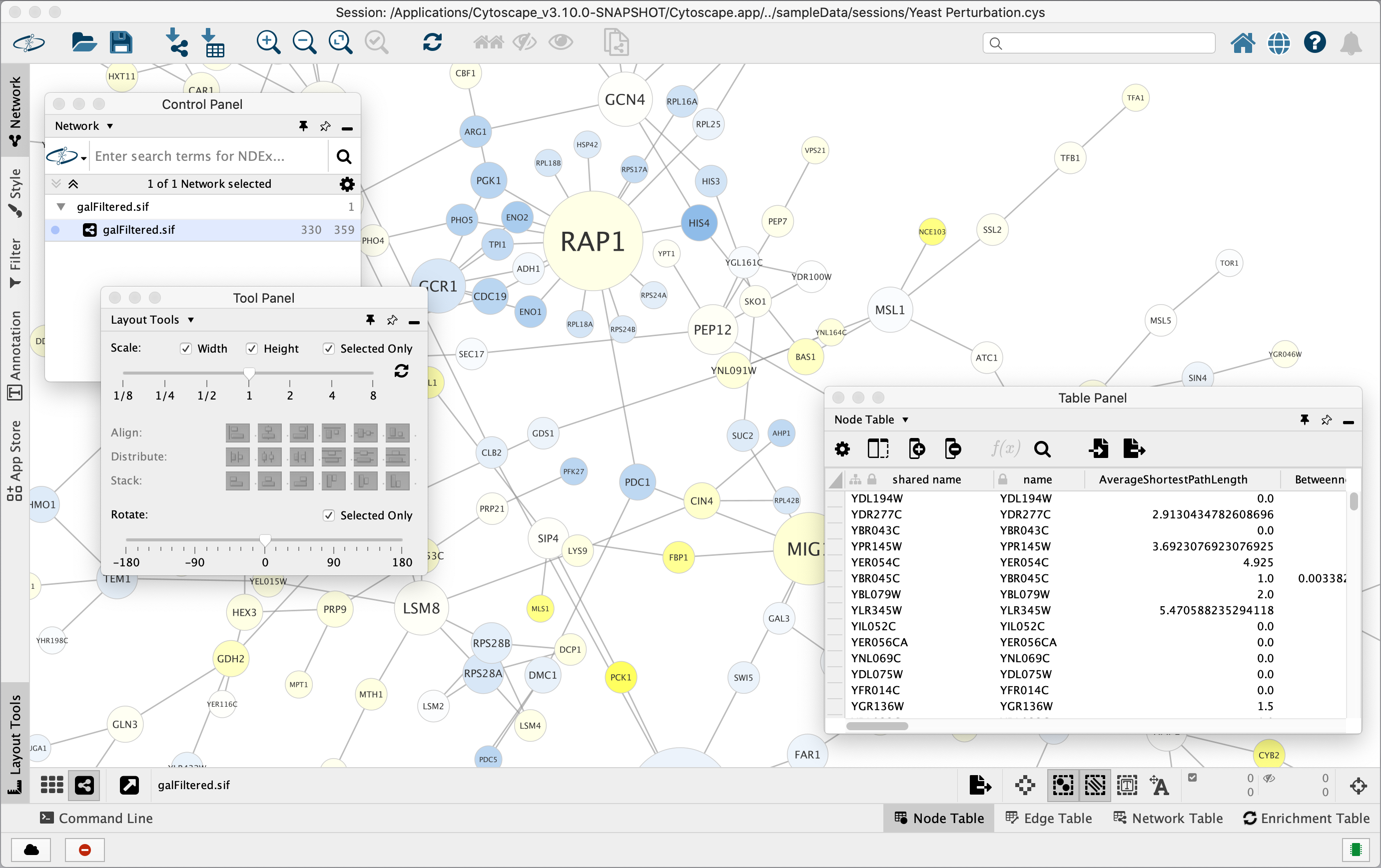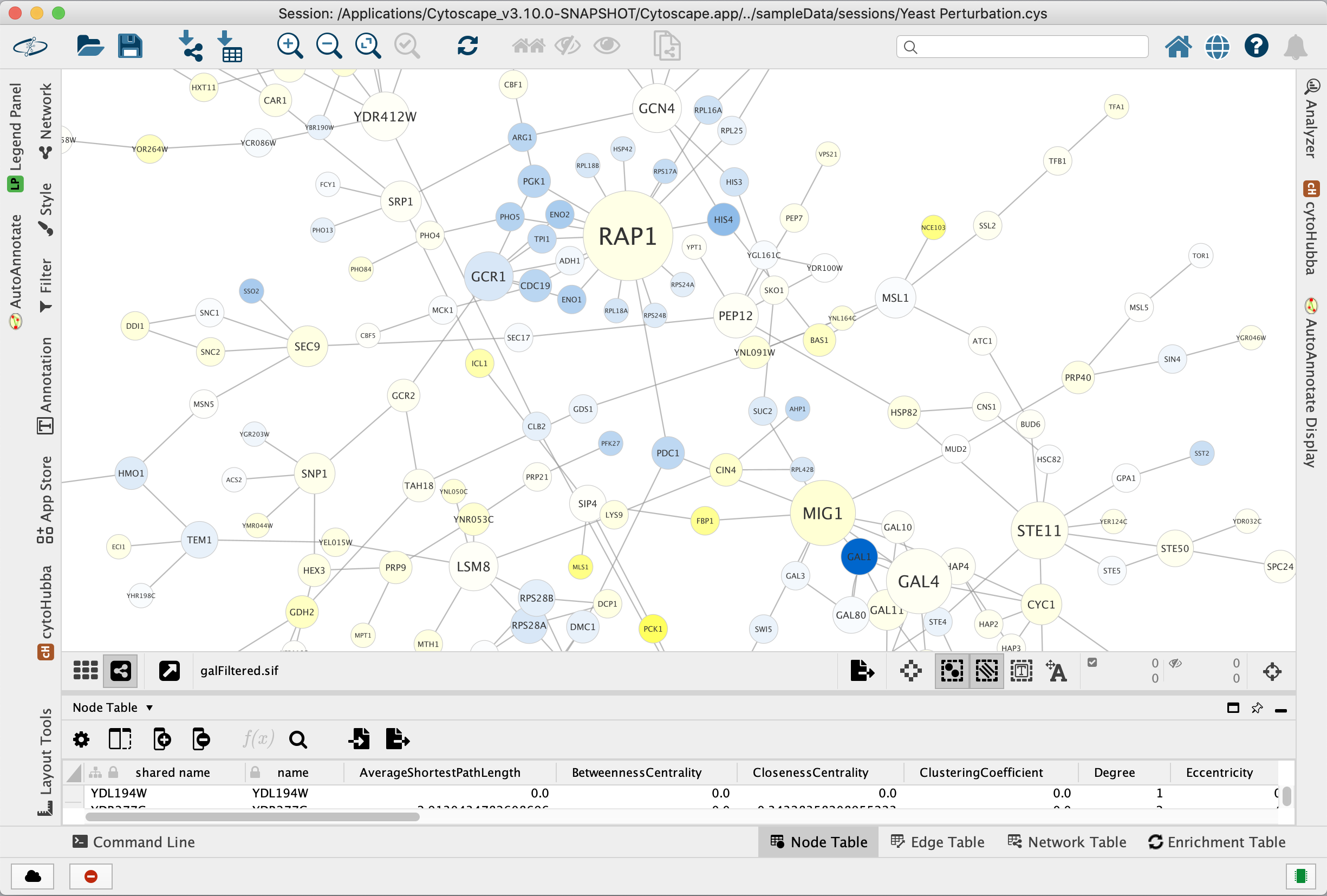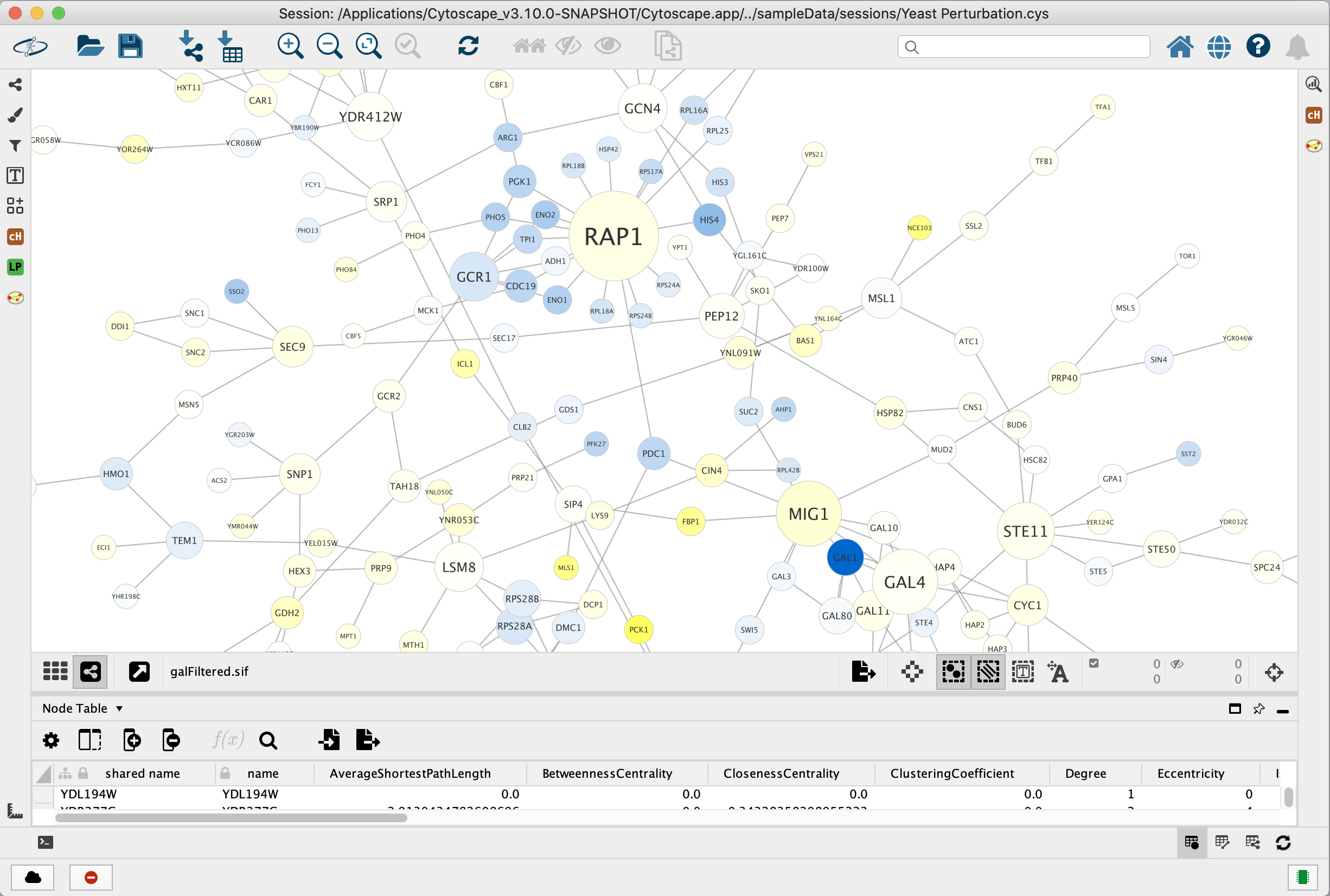21. Panels¶
There are five panels that can be visible or hidden:
Control Panel (left)
Tool Panel (bottlom left)
Table Panel (bottom right)
Results Panel (right)
Command Panel (bottom)
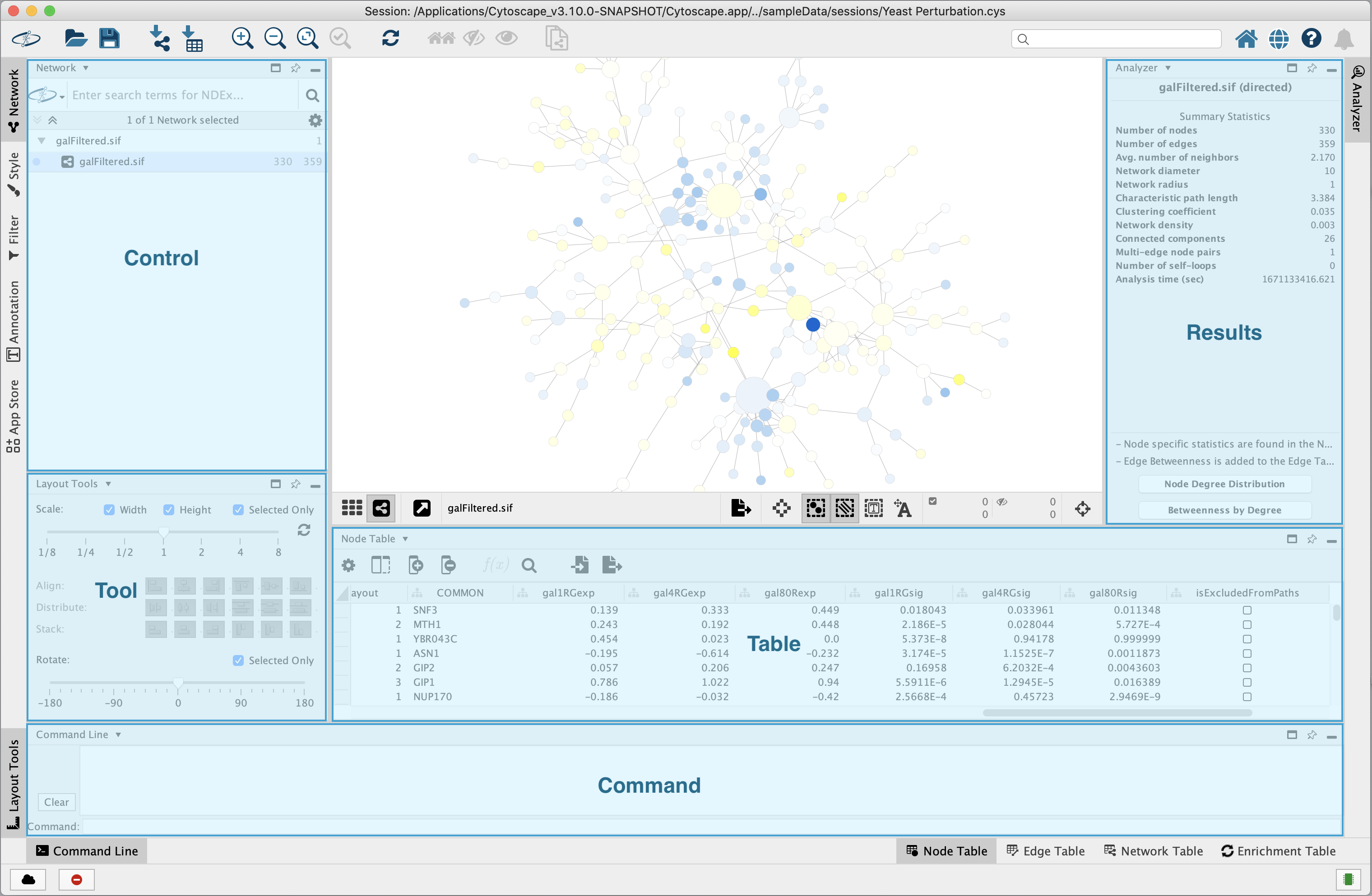
Each panel contains multiple tabs. For example the Control Panel contains at a minimum the Network, Style, Filter and Annotation tabs. The Table Panel contains the Node Table, Edge Table, Network Table and Enrichment Table tabs. The Node and Edge tables contain any data associated with nodes and edges, and the Network Table contains network-wide associated data, for example URL or publication links. You can add relevant network-wide information to your network by adding columns in the Network Table. Analysis results from Network Analyzer (Tools → Analyze Network) are shown in Results Panel. Installed apps may add additional tabs.
21.1. Managing Panels¶
These panels can compete for valuable screen real-estate (e.g. by making the network view too small), so it is important to manage each panel’s state and size properly and acconding to the user’s needs. You can take advantage of these 5 panel states in order to manage the available screen real-estate:
Hidden: A panel can be totally removed from the screen if you find it unnecessary. To do that, uncheck the corresponding option under the View menu (e.g. uncheck View → Show Results Panel to hide the Results Panel). When a panel is hidden its tabs no long appear in the sidebar. In order to show the panel again select the same menu option.
Alternatively, you can right-click an empty space on any sidebar to hide/show a panel:
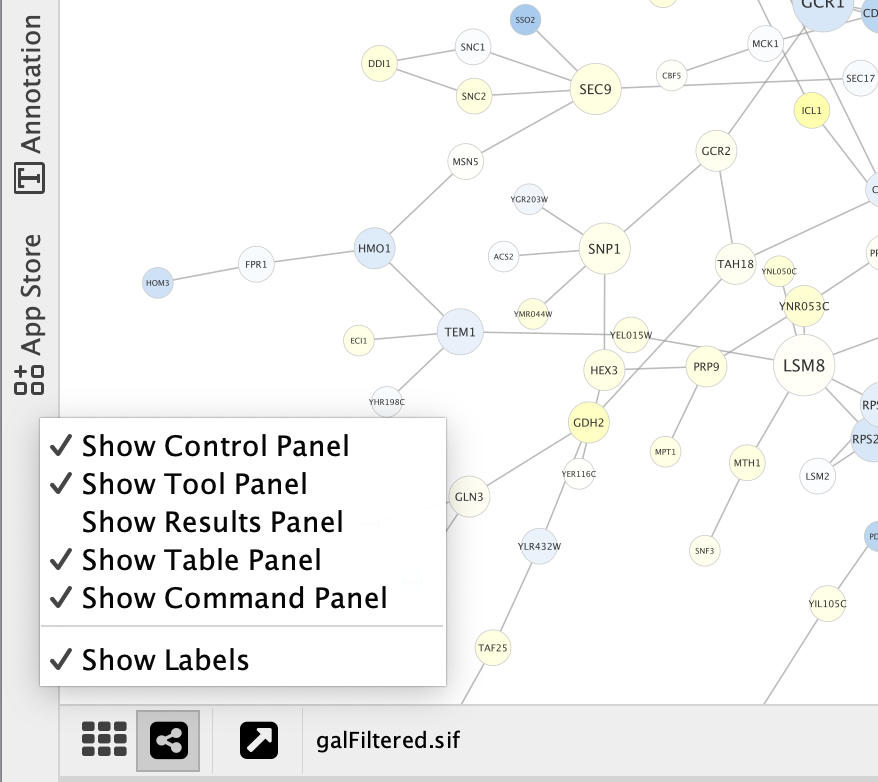
Minimized: Use the Minimize icon
 at the top-right corner of a panel to quickly hide it. The tabs from a minimized panel still appear on the sidebar, and by clicking a tab the panel will be shown again as undocked. Some panels (e.g. Tool Panel) may be minimized by default.
at the top-right corner of a panel to quickly hide it. The tabs from a minimized panel still appear on the sidebar, and by clicking a tab the panel will be shown again as undocked. Some panels (e.g. Tool Panel) may be minimized by default.
In the example below, the Control and Tool panels are minimized (Results and Command are hidden):
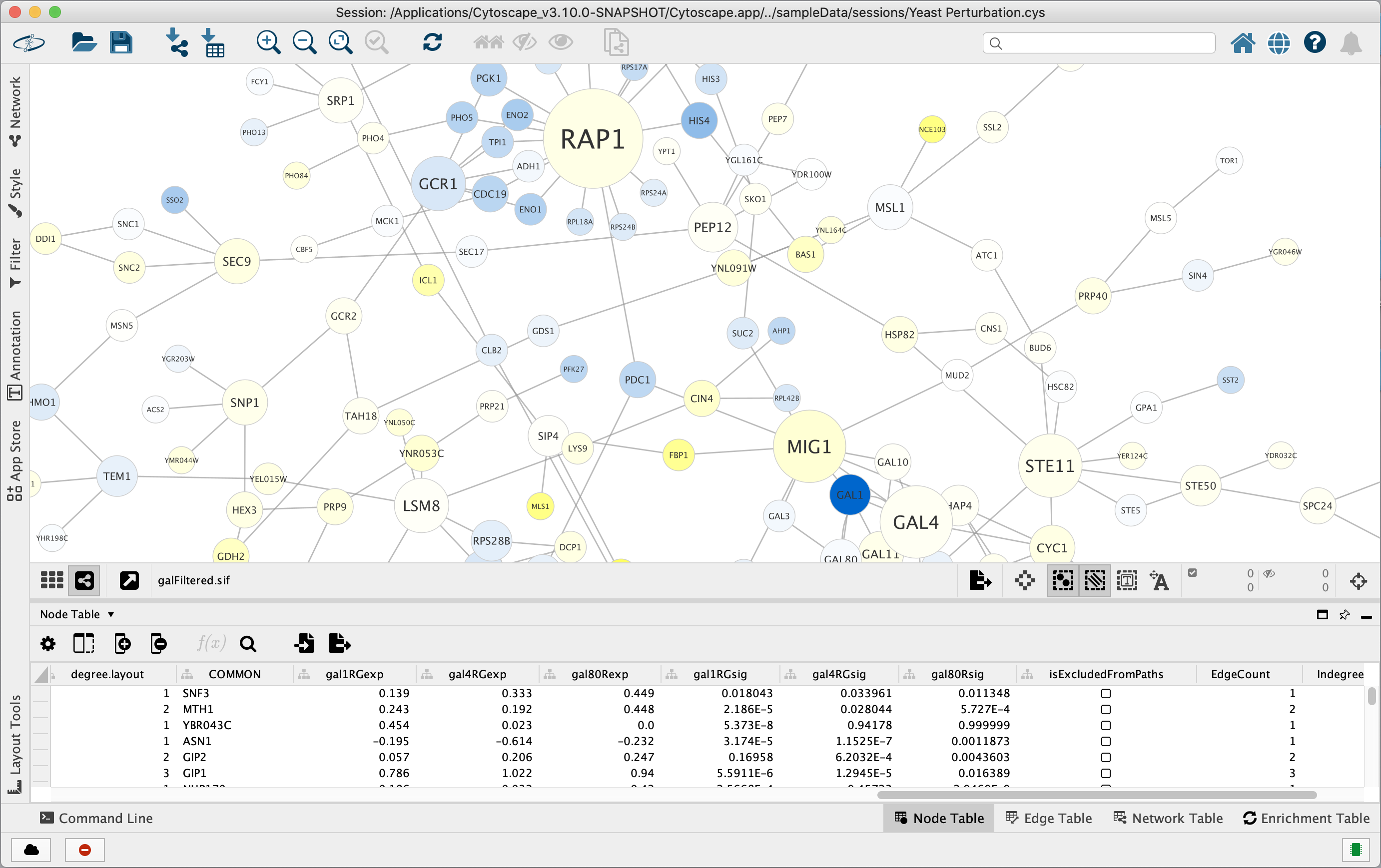
Docked: The most used panels (e.g. Control, Table) are initially docked by default. When docked, a panel takes the space that could be used by its adjacent panels and by resizing it, those adjacent panels are resized as well (e.g. by resizing the Control Panel horizontally, the View Panel is also resized). If a panel is undocked or floating, use the Dock icon
 to make it docked.
to make it docked.
In the screenshot below, all panels are docked, except Results and Command, which are hidden:
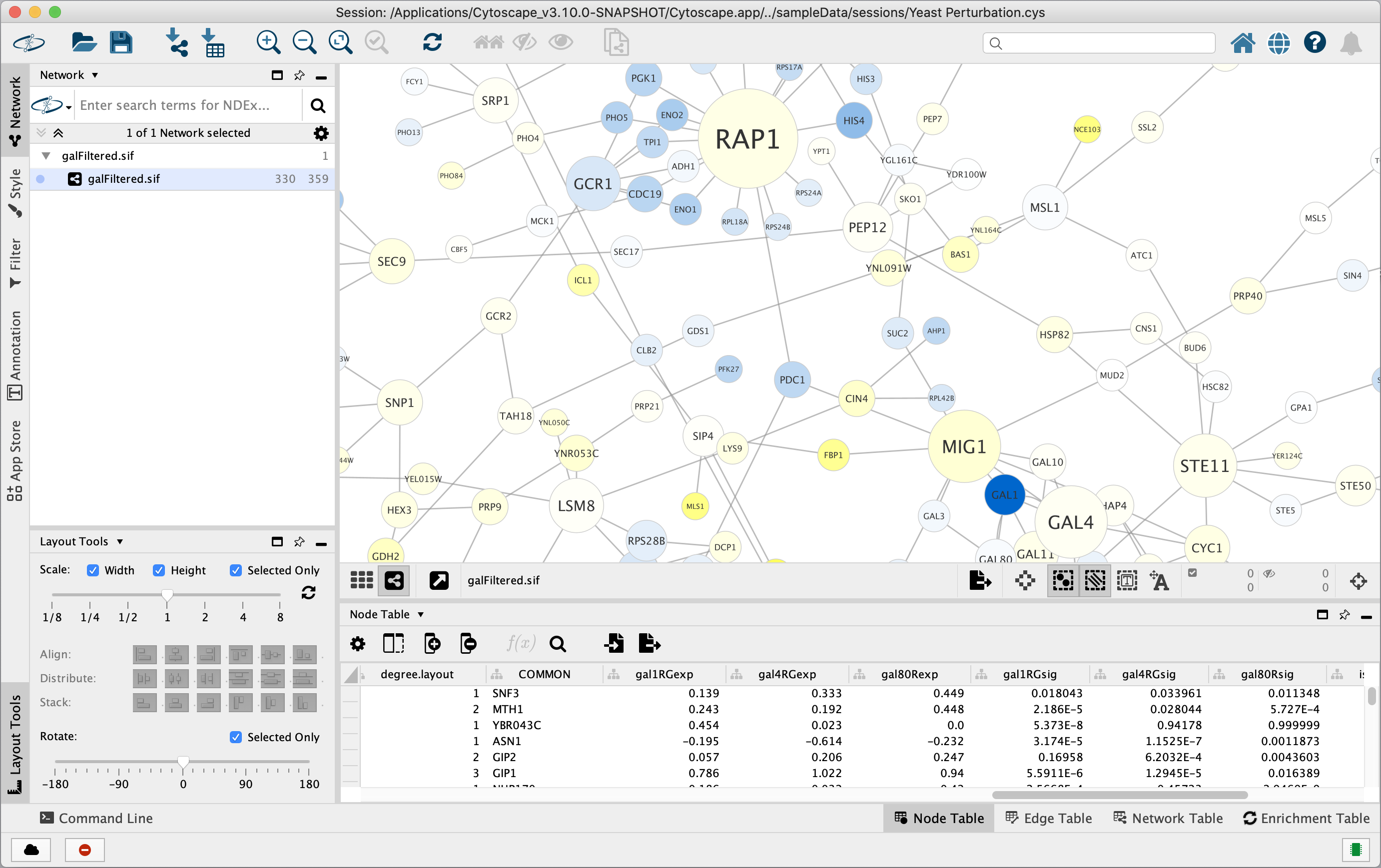
Undocked: A panel is undocked when the Undock icon
 is clicked or a minimized panel is shown again by clicking one of its tabs on the sidebar. In this state, the panel is displayed over other panels but is still anchored to one of Cytoscape corners. That allows it to be resized more freely (vertically and horizontally) whithout affecting the size of other panels. You can also double-click the undocked panel’s title bar to quickly maximize it. And double-clicking the title bar of a maximized panel again will restore it to its previous size. To temporarily hide an undocked panel click the Minimize icon
is clicked or a minimized panel is shown again by clicking one of its tabs on the sidebar. In this state, the panel is displayed over other panels but is still anchored to one of Cytoscape corners. That allows it to be resized more freely (vertically and horizontally) whithout affecting the size of other panels. You can also double-click the undocked panel’s title bar to quickly maximize it. And double-clicking the title bar of a maximized panel again will restore it to its previous size. To temporarily hide an undocked panel click the Minimize icon  . An undocked panel will be automatically minimized when other panels or components outside the undocked panel are clicked.
. An undocked panel will be automatically minimized when other panels or components outside the undocked panel are clicked.
In the example below, the Control panel is undocked:
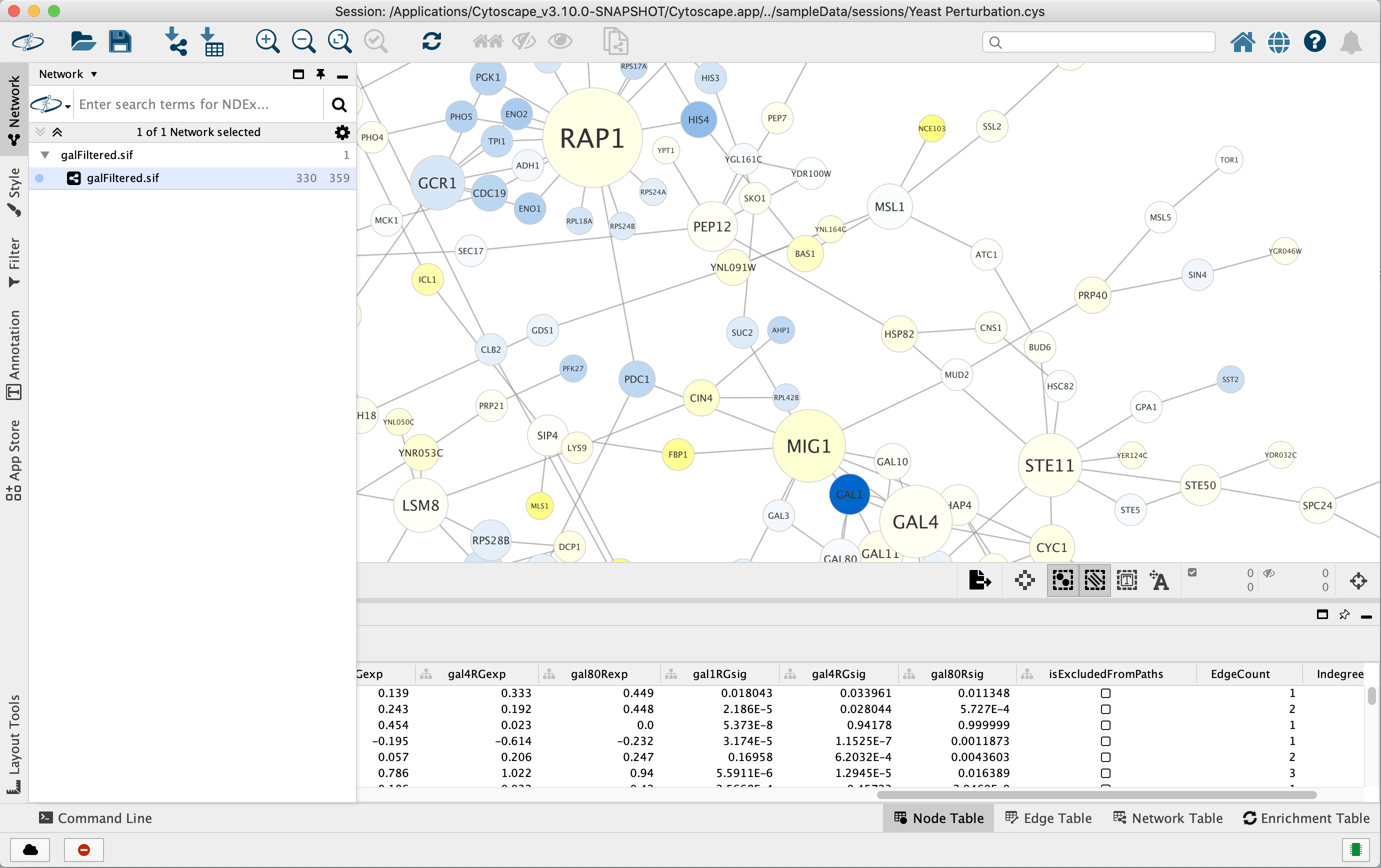
Floating: Use the Float icon
 to completely detach a panel from the Cytoscape desktop. A floating panel has its own window that can be resized, maximized and minimized like any other application window. It can also be moved to another monitor in a multi-monitor setup.
to completely detach a panel from the Cytoscape desktop. A floating panel has its own window that can be resized, maximized and minimized like any other application window. It can also be moved to another monitor in a multi-monitor setup.
When a panel is floating, its tabs are not removed from the corresponding sidebar in the main desktop window, but you can also use the drop-down in the floating panel’s title bar to show another tab’s content:
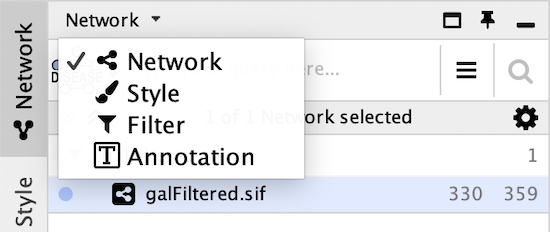
In the image below, the Control, Table and Tool panels are floating:
